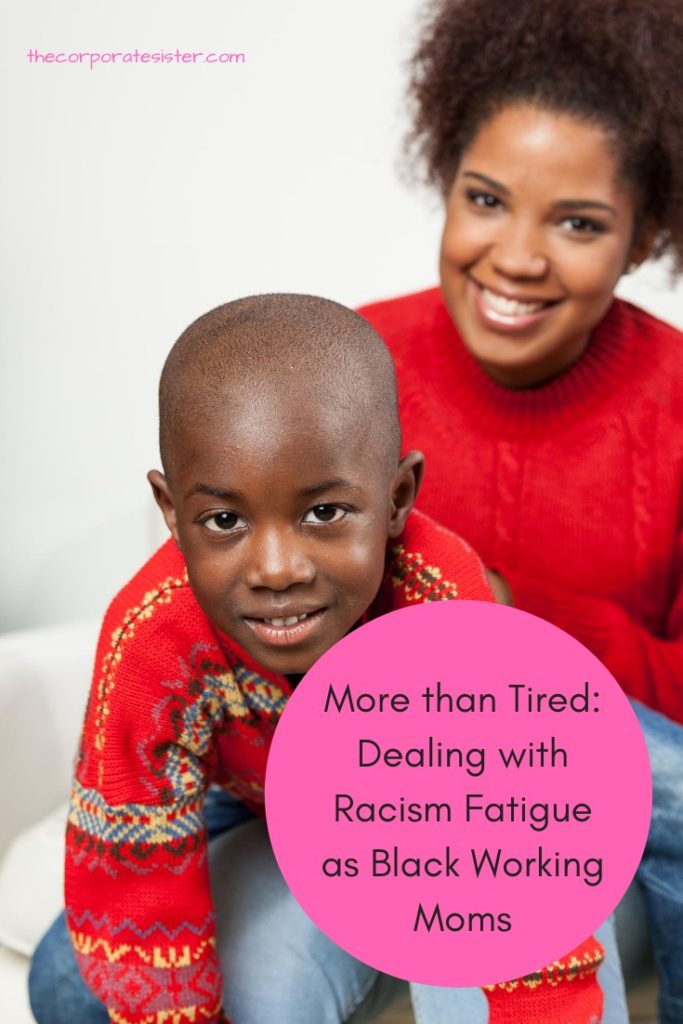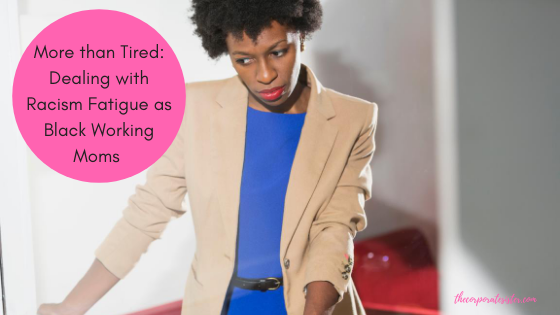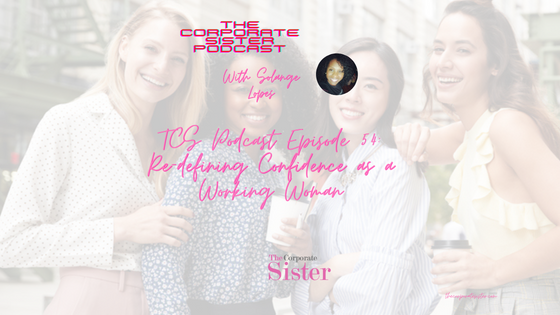Racism fatigue is real. It manifests as a sense of deep exhaustion constantly hovering at the surface of one’s emotions, threatening to spill over at any moment without any warning. Even more dangerous, is the deep effect its roots have on one’s mental, emotional and spiritual health. Yet, it’s a fatigue that as people of color, we’re asked to politely stand day in and day out, as our very minds, hearts and souls keep breaking at the sight of yet another murder headline, yet another senseless shooting, yet another injustice…

As Black working moms bravely standing at the intersection of race and gender, stretched thin between the inequities on both sides, gripped by both fear and despair for our sons, husbands, fathers, sisters, mothers, the weight can hardly be put into words. Instead, it gets hidden behind heroic facades of “strong black women” who appear to be invincible, strong beyond measure, unbreakable, all the while shattering inside into a million tiny pieces of anguished fatigue, deferred hope and untreated exhaustion that no amount of rest seems to make up for…
Eventually, racism fatigue has to be gutted out of the abysses of our minds and hearts, and honestly dealt with. Eventually, it has to be faced, as honestly and unequivocally as one can muster the strength to do. This is no easy feat when the media keeps bombarding us with images of murders in broad daylight in the middle of a global pandemic, and all our senses are on constant alert for fear of not being able to breathe. Dealing with this type of fatigue requires a conscious decision to act upon some of our most primal fears, and start or continue deliberate processes to help:
- Identify places and people causing harm and find safe spaces
Being constantly exposed to racial trauma is the very thing that creates and amplifies racism fatigue. Identifying the places and people that cause such harm is then crucial to decrease or eliminate the incidences of experiencing race-related trauma. It may be avoiding social media, skipping certain topics of conversation with some people, or even express your frustration out loud.
In addition, finding safe spaces and people with no need to self-censor can go a long way. While it may take some experimentation, this step can help in building a community and sense of belonging.
- Normalize the conversation about racism
In many settings, especially in most workplaces, racism is still a very taboo topic. We just don’t talk about race, or politics at work, for instance. This is where normalizing the conversation about race becomes so important, and a way to take away the threat of racism fatigue.
Many companies have started this process by acknowledging the racial trauma many of their employees experience, and facilitating talks around it through diversity training and other initiatives. While these are difficult conversations to navigate, they are crucial in helping not just employees of color,but all employees, overcome racism fatigue.
- Invest in Self-care
Last but not least, investing in self-care is key. Very few realize the physical, mental and emotional toll racism takes on marginalized populations. People of color are at a higher risk of suffering from stress and high blood pressure and hypertension as a result of experiencing racism. It’s also associated with higher rates of depression, anxiety, depression and stress.
Whether it’s rest, therapy, or time away, pouring into oneself is another effective way to deal with racism fatigue.
Racism fatigue is real, and really needs to be dealt with, especially as Black working moms. It requires us to be willing to recognize ahnd face the trauma, and address it through difficult but necessary decisions and actions.
How are you fighting racism fatigue as a Black working mom?
The Corporate Sis







